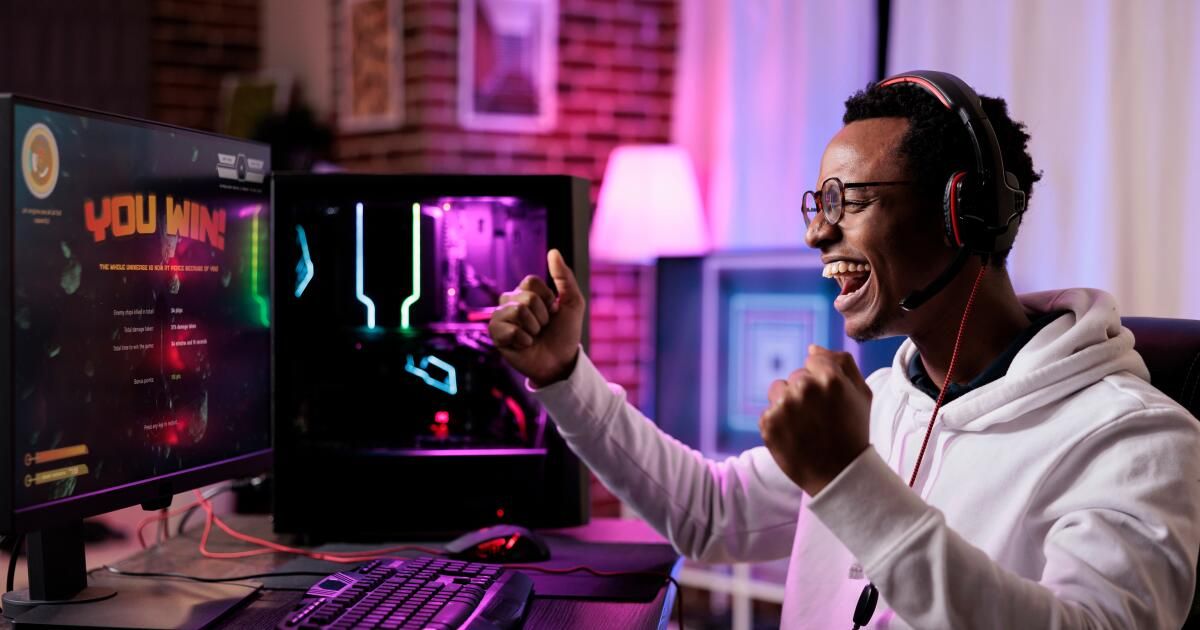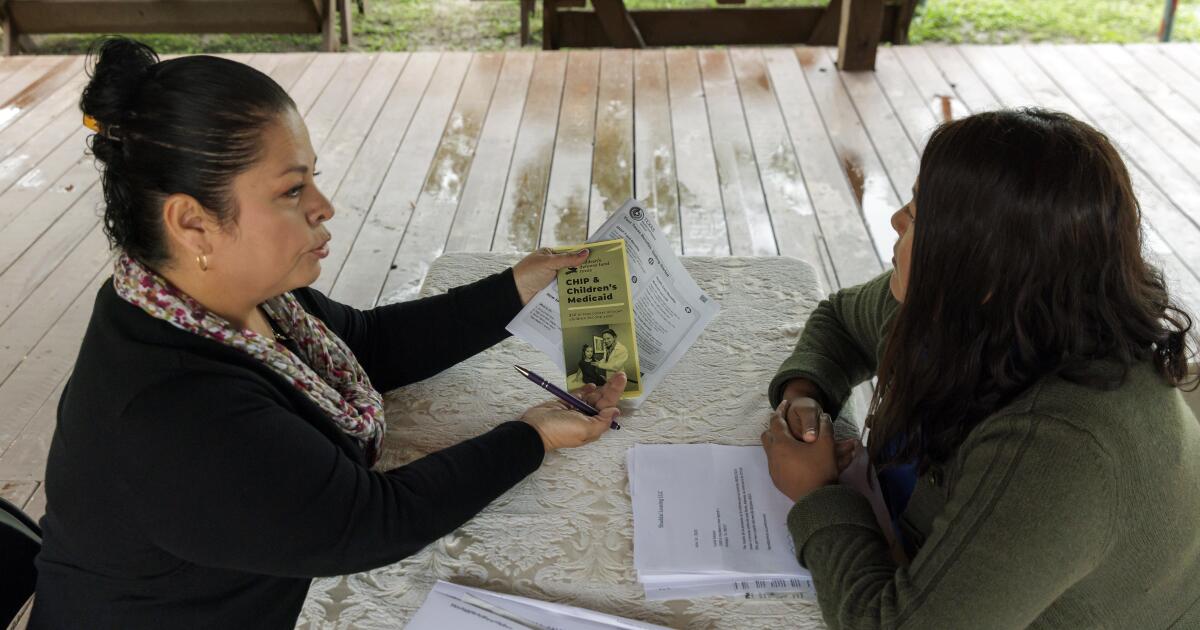In the early days of COVID lockdown, Hiroyuki Egami was desperate to get his hands on a Nintendo Switch.
He already owned one of the handheld consoles, but he also had two children who were already old enough to fight over it. The only way to keep the peace in his family home in Tokyo was to acquire a second unit.
So many parents had the same idea that stores in Japan quickly sold out of stock. When the game consoles became available again, retailers held raffles to ensure that everyone who wanted to buy one had an equal chance of doing so.
Egami, an economist at Nihon University in Tokyo, was quick to recognize that the lottery system could function as a natural experiment and shed light on a question that had been on his mind for years: Are video games really harmful to players’ mental health?
“People often say that video games are harmful and that children should limit the amount of time they spend playing,” he said. “As a parent, I have been wondering if that is true.”
And as an investigator, he said, he felt “some kind of responsibility” to examine the evidence.
Not long before, the World Health Organization sparked controversy by adding a condition called Gaming disorder According to the International Classification of Diseases, this disease refers to people who are so consumed by video games that they cannot control their gaming behavior, even when it endangers their health, their relationships with family and friends, and their livelihood.
The WHO action reinforced the long-held view that video games are dangerous. However, market researchers estimate that more than 3 billion people worldwide play video games, a figure that has been growing steadily for years.
And while titles like “Grand Theft Auto” and “Call of Duty” regularly appear on the best-seller list, so do family-friendly titles like “Minecraft,” “Animal Crossing,” “Madden NFL” and “Mario Kart 8.”
Players play “Super Smash Bros. Ultimate” on Nintendo Switch at Poway High School’s Esports Arena.
(Noah Harrel)
“Parents should know” whether video games are really dangerous, Egami said. “Parents should not feel too pressured, which is not rational.”
Studies linking video games to aggression, addiction, cognitive function and overall well-being have been inconclusive. One reason is that it's hard to determine, for example, whether gaming itself makes people feel isolated or whether isolated people tend to gravitate toward video games.
The way to identify cause and effect is to take a group of people and randomly assign some of them to play video games while others do not play to serve as controls. If differences emerge between otherwise similar groups, they can be attributed to the games.
But experiments like these don't reflect how people play video games in real life, Egami said. They typically ask college students to play a video game in a lab at a set time — a study design that, while practical, limits the value of the findings.
That’s why Egami took advantage of video game lotteries. By randomly selecting some potential gamers to buy consoles and leaving others empty-handed, retailers had inadvertently created the equivalent of a clinical trial.
Egami got to work. He designed a questionnaire and sent it out into the field as quickly as possible, worried that the shortage would be resolved before he could collect the necessary data.
“Luckily, I was able to get my research team together and start working on it,” he said.
Between 2020 and 2022, nearly 100,000 people completed Egami’s survey, including 8,192 who participated in a video game lottery. More than a third of lottery participants considered themselves “heavy gamers” who played at least 90 minutes each day. In addition to gaming habits, the survey measured people’s psychological well-being and distress. It also asked about a range of socioeconomic factors, including age, gender, employment and family structure.
After crunching all the numbers, the researchers found that purchasing a Nintendo Switch or a Sony PlayStation 5 through a lottery led to measurable reductions in the recipient's psychological distress, and that owning and playing either device improved the owner's mental health.
Additionally, being selected to purchase a PS5 through a lottery increased gamers’ feelings of life satisfaction. The same was true for owning the console and using it to play games, the researchers found. (The team didn’t have the data to determine whether this was also true for the Nintendo Switch.)
While the improvements in well-being were statistically significant, they weren't necessarily large enough to be noticed by players, Egami said.
The magnitudes of the changes were calculated in terms of standard deviations, which are used in statistics to express how closely a group of data points cluster together. Medical studies suggest that changes are noticeable if they exceed 0.5 standard deviations. By that measure, only the mental health improvements that came from owning or playing a Switch were large enough for gamers to notice.
The data also indicated that after three hours of gaming in a single day, spending more time playing video games resulted in diminishing benefits. But there was no amount of time beyond which gaming became “detrimental to mental well-being,” Egami said.
The findings were published Monday in the journal Nature Human Behavior.
While it’s difficult to interpret the exact size of the effects, “they seem large enough to be noticeable to the players themselves,” said Matti Vuorre, a psychological scientist at Tilburg University in the Netherlands who studies video games and other virtual environments. That “indicates a significantly large effect in my opinion” and makes it harder to argue “that gaming is a general risk” for the average player, he said.
Nick Ballou, a postdoctoral researcher at the Oxford Internet Institute who studies how video games affect mental health, said he suspects the improvements in well-being “would be small but noticeable to people.” Anything much larger would be unlikely, he said, since “video games are only a small part of what contributes to a thriving life.”
Neither Vuorre nor Ballou were involved in Egami’s research, but they collaborated on a 2021 study that documented a dramatic increase in gaming during the pandemic. This was particularly true for multiplayer games, suggesting they were not just a source of entertainment but also an avenue for social connection.
“We have a lot of evidence that people turned to gaming as a lifeline in the early part of the pandemic,” said Ballou, who conducted one such study in May 2020. He said he wouldn’t necessarily expect the benefit to be as strong in a more typical situation.
Egami agreed that some of the mental health benefits her team documented were likely due to the unique circumstances of the pandemic, but she doesn’t think they’ve completely disappeared now that normal life has resumed.
“I hope this brings peace to the general public who enjoy video games,” Egami said.












